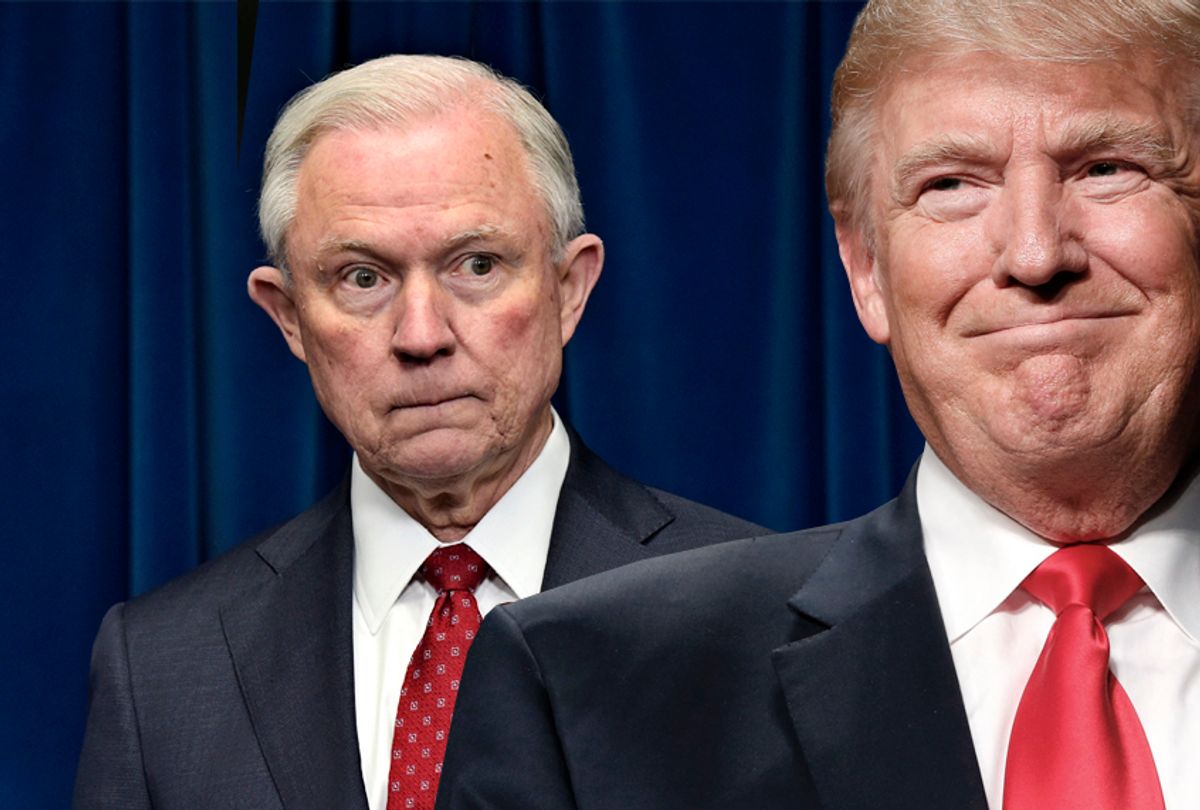President Trump is still stewing over former Attorney General Jeff Sessions' recusal from the Russia investigation, which led to the appointment of special counsel Robert Mueller. As a result, the Trump and may bring down Sessions’ rumored Senate bid before it even begins.
Sen. Richard Shelby, R-Ala., told The Hill on Thursday that he spoke with Sessions about challenging the possibility of challenging Democratic Sen. Doug Jones next year but that the president was “not on board” with the idea.
"I did talk to [Sessions]. I talked to the president about if Sessions ran, he was not encouraging," Shelby told the outlet.
"I think he would be formidable but he would [have] multi-battles. He might be having to struggle if the president was against him … and then with his opponents," Shelby added.
Sessions held the same Alabama Senate seat that Jones currently occupies for two decades, and became Trump’s first supporter in the Senate after the real estate tycoon announced his presidential bid. His relationship with Trump quickly soured, however, after Sessions recused himself from the Justice Department’s investigation into the Trump campaign’s ties to Russia, which prompted Deputy Attorney General Rod Rosenstein to appoint Mueller.
Trump fired Sessions last November after repeatedly complaining that his attorney general had failed to “protect” him. Trump told the New York Times that Sessions should have told him about the potential recusal "before he took the job and I would have picked somebody else.”
Trump has not stopped his attacks on Sessions since the latter stepped down immediately after the November midterms. The president even used a mocking Southern accent to taunt Sessions during a speech to the Conservative Political Action Conference (CPAC) in March.
Sessions has been floated as a possible candidate for his old Alabama Senate seat since before his resignation. Sessions fueled the rumors further in May when he would not rule out jumping into the race for the Republican nomination.
“I’d love to see us bring more intellectual heft behind those positions. I think it exists, and maybe I can contribute some in that,” Sessions said at a SALT Conference in Las Vegas, adding that he hadn’t "made a formal announcement about the Senate race, but I am interested about the issues."
The most high-profile candidate in the primary race is Roy Moore, the former Alabama Supreme Court chief justice who won the Republican nomination for the 2017 special election after Sessions resigned to become attorney general. Moore went on to become the first Alabama Republican to lose a statewide race in decades, narrowly losing to Jones after numerous women accused Moore of pursuing them or sexually assaulting them when they were teenagers and he was in his 30s.
Many Republicans deserted Moore after the allegations were reported. But Trump, his former strategist Steve Bannon and the Republican National Committee all continued to back Moore's candidacy right up to the end. Trump has signaled that he won’t support Moore this time around because he “probably won’t” win, but added that he had “nothing against” the disgraced former judge accused of preying on children while serving as a prosecutor.
A recent poll found that Moore still has a 38 percent favorable rating among Alabama Republicans but currently sits in third place in the primary race, trailing Rep. Bradley Byrne and former Auburn football coach Tommy Tuberville.
Republicans are not eager to see Moore win the nomination once again.
"I would oppose Roy Moore,” Shelby told Politico. “I will not be by myself, I hope. I think Alabama can do better than that.”



Shares